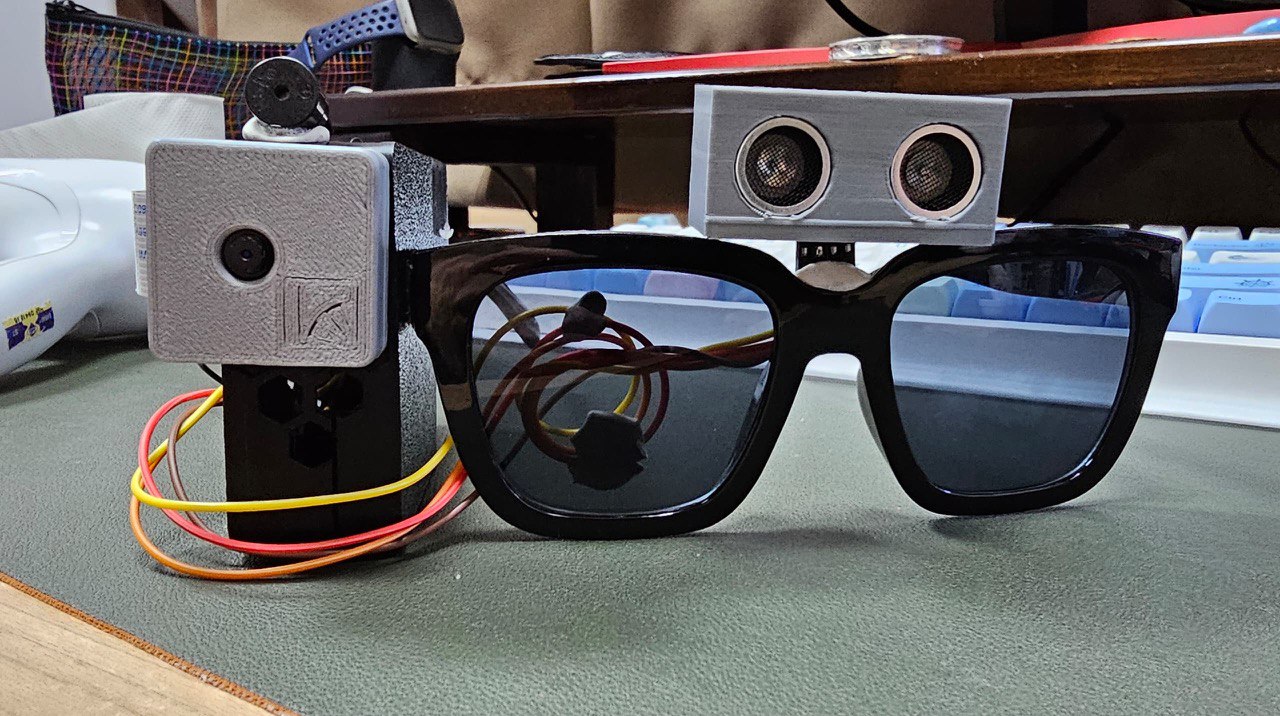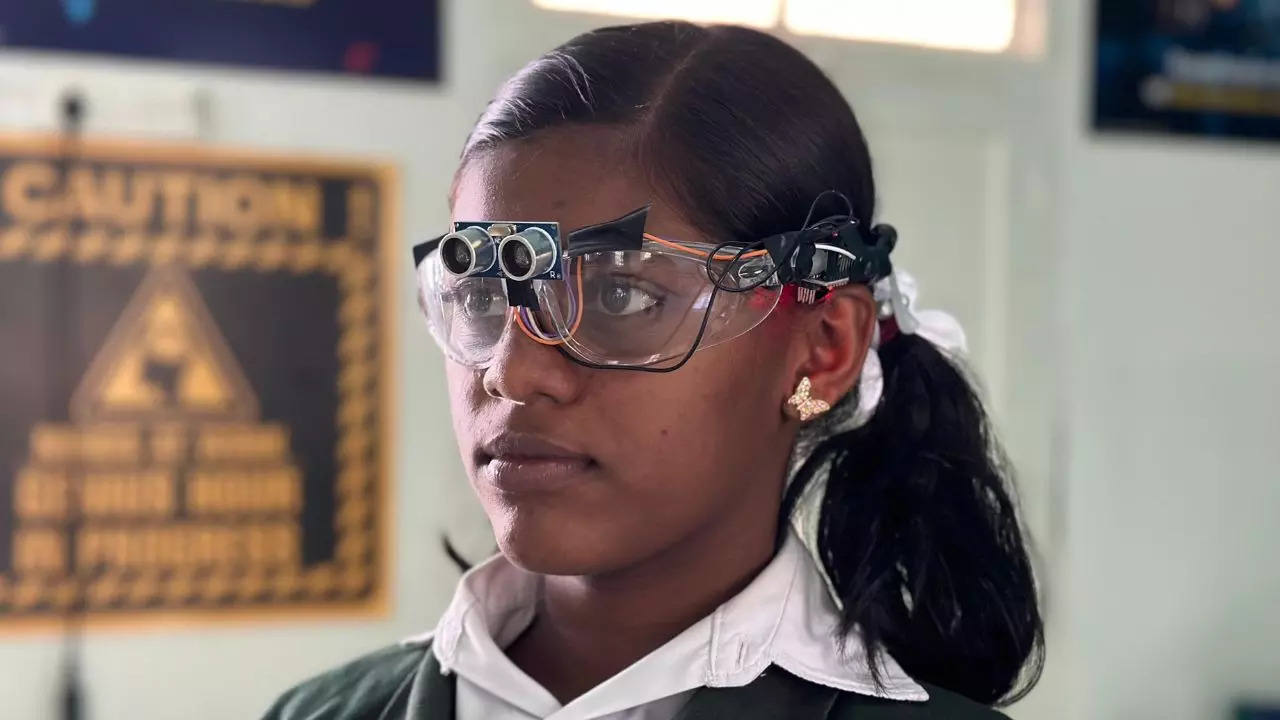Discover Advanced Assistive Instruments for People With Visual Problems
The landscape of assistive technology for individuals with aesthetic problems is advancing swiftly, presenting an array of ingenious tools that enhance freedom and involvement. From smart glasses that flawlessly merge visual input with acoustic guidance to sophisticated navigation applications that redefine spatial awareness, these tools are reshaping possibilities.
Smart Glasses Innovations
Smart glasses stand for a substantial advancement in assistive technology for individuals with visual impairments. These innovative devices integrate various features developed to boost the user's interaction with their setting. Outfitted with sensing units and cams, wise glasses can record real-time aesthetic information, which is after that processed and conveyed to the customer via audio feedback or haptic sensations. This functionality enables individuals to obtain instant descriptions of their environments, enhancing their ability to involve and navigate with the globe.
Additionally, improvements in expert system have better improved the capabilities of clever glasses. Artificial intelligence formulas can identify faces, read message, and identify objects, making them very useful tools for daily tasks. Individuals can obtain auditory hints that offer context concerning their atmosphere, promoting independence and confidence.
In addition, the ergonomic style and lightweight nature of several smart glasses make them ideal for long term usage, making sure comfort while improving capability. As these devices proceed to evolve, they hold the prospective to transform the means people with visual problems experience their day-to-days live, connecting the gap between accessibility and technology. The continuous study and development in this area promise to broaden the possibilities for wise glasses, making them a crucial component of modern assistive devices.
Navigating Application and Devices
Numerous navigation apps and tools have arised as essential resources for individuals with visual disabilities, substantially boosting their capability to go across strange settings. These modern technologies leverage GPS functionality, audio hints, and real-time information to supply customers with precise navigation aid.
One prominent instance is the Aira application, which attaches individuals to trained agents that can give aesthetic descriptions of environments and navigating assistance with an online video feed. This solution boosts the individual's spatial understanding and confidence while browsing. Another noteworthy device is Seeing Eye GPS, which provides voice-guided navigation and points of passion, making it possible for users to access essential information about their environments.

As innovation remains to advance, the growth of extra innovative navigating tools guarantees to further equip people with visual disabilities, promoting seamless mobility and combination right into diverse atmospheres. Such innovations are critical in promoting a much more comprehensive culture.
Braille Technology Developments
Recently, advancements in Braille innovation have dramatically changed just how people with visual problems accessibility information and involve with the world around them. The development of mobile Braille screens has reinvented reading by allowing customers to see here now connect wirelessly to computer systems, smartphones, and tablet computers. These gadgets transform message into Braille in real-time, making it possible for seamless communication with digital web content.
In addition, cutting-edge Braille printers have actually emerged, improving the production of responsive materials. Modern embossers are much faster and more effective, enabling the fast production of Braille files and instructional materials. This efficiency decreases the moment and price connected with producing Braille resources, making them extra available to institutions and companies.
Furthermore, the integration her comment is here of Braille with various other modern technologies, such as synthetic knowledge and device knowing, has actually opened up new opportunities for individualized learning experiences. Voice acknowledgment and synthesis modern technologies can match Braille, providing a comprehensive approach to information dissemination.
As the need for inclusive education and workplace environments grows, these technological improvements play a critical role in empowering people with aesthetic problems, guaranteeing they have equivalent accessibility to info and opportunities in different elements of life.
Wearable Instruments for Freedom
A growing array of wearable gadgets is improving independence for individuals with visual disabilities, providing innovative services that improve navigating and daily living. Braille displays and notetakers. These devices make use of sophisticated innovations to provide real-time responses and assistance, promoting autonomy in different atmospheres

Wearable technology likewise consists of smartwatches that can be programmed with accessibility functions, making it possible for users to get notices, track their areas, and even require support with the touch of a switch. Furthermore, some tools incorporate man-made knowledge to analyze the environment, offering audio summaries of neighboring things or people.
Voice-Activated Assistive Solutions
Leveraging voice-activated assistive options has actually changed the landscape of support for individuals with visual problems, providing hands-free interaction and accessibility to a selection of jobs. These technologies make use of natural language processing and expert system to make it possible for individuals to execute day-to-day visite site tasks via simple voice commands.

In addition, recent improvements in voice recognition precision have enhanced the individual experience substantially, fitting varied accents and speech patterns. This inclusivity ensures that more individuals can benefit from these innovations, cultivating a better sense of autonomy.
Verdict
To conclude, the advancement of innovative assistive devices substantially boosts the independence and lifestyle for people with visual problems. Technologies such as smart glasses, navigating applications, Braille technology, wearable devices, and voice-activated remedies collectively cultivate an even more inclusive setting. These modern technologies equip individuals to browse their surroundings with confidence and engage even more completely with the world, ultimately promoting greater ease of access and level playing fields for people encountering visual challenges.
The landscape of assistive technology for people with visual problems is progressing quickly, providing a variety of cutting-edge devices that enhance autonomy and interaction.Smart glasses represent a substantial innovation in assistive modern technology for individuals with aesthetic disabilities. As these gadgets continue to evolve, they hold the prospective to revolutionize the means individuals with visual problems experience their daily lives, connecting the void in between access and technology.In current years, advancements in Braille modern technology have actually considerably changed just how individuals with visual impairments gain access to info and engage with the world around them. These technologies empower customers to browse their surroundings with confidence and involve more fully with the world, eventually advertising higher accessibility and equal opportunities for individuals encountering visual obstacles.